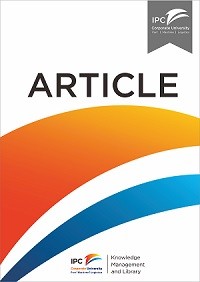Article
Piracy and maritime governance in the Indian Ocean
During the late 1990s and the early 2000s, this author conducted a comparative study on regime building in the world’s three maritime ‘mega regions’, i.e., the Atlantic, the (Asia-) Pacific and the Indian Ocean. The aim was to explain why regime building is so difficult in the latter as compared to the former two, and why newly formed regimes tend to end up as ‘sandbanks of shattered hope’ soon after their inauguration. Many reasons were offered both by the author’s numerous respondents and by the author himself, but amongst the findings was the widely shared opinion of specialists from various Indian Ocean Rim countries that attempts at regime building tended to fail because their aims and objectives were too lofty. Rather, it was argued that regime-building attempts should start on the relatively modest level of confidence building measures which all potential participants could agree on, such as disaster relief, search and rescue (SAR), sustainable development of marine resources, fisheries protection, and the fight against piracy. All those measures can be subsumed under the label ‘maritime governance’, which will be define below.
Ketersediaan
Informasi Detail
- Judul Seri
-
-
- No. Panggil
-
ATC MR TEH p
- Penerbit
- India : Routledge., 2013
- Deskripsi Fisik
-
17 p.
- Bahasa
-
English
- ISBN/ISSN
-
-
- Klasifikasi
-
MR
- Tipe Isi
-
-
- Tipe Media
-
-
- Tipe Pembawa
-
online resource
- Edisi
-
-
- Subjek
- Info Detail Spesifik
-
-
- Pernyataan Tanggungjawab
-
Peter Lehr
Versi lain/terkait
| Judul | Edisi | Bahasa |
|---|---|---|
| Piracy and maritime governance in the Indian Ocean | en | |
| Maritime governance and policy making | Volume 29 Number 3 December 2013 | en |
| Maritime governance and policy making | Volume 29 Number 3 December 2013 | en |
| Maritime policy in the North Sea region : application of the cluster approach | Vol. 16, 4, 484–500 | en |
| The determinants of maritime policy | VOL. 34, NO. 6, 521–533 | en |
Lampiran Berkas
Komentar
Anda harus masuk sebelum memberikan komentar

 Karya Umum
Karya Umum  Filsafat
Filsafat  Agama
Agama  Ilmu-ilmu Sosial
Ilmu-ilmu Sosial  Bahasa
Bahasa  Ilmu-ilmu Murni
Ilmu-ilmu Murni  Ilmu-ilmu Terapan
Ilmu-ilmu Terapan  Kesenian, Hiburan, dan Olahraga
Kesenian, Hiburan, dan Olahraga  Kesusastraan
Kesusastraan  Geografi dan Sejarah
Geografi dan Sejarah